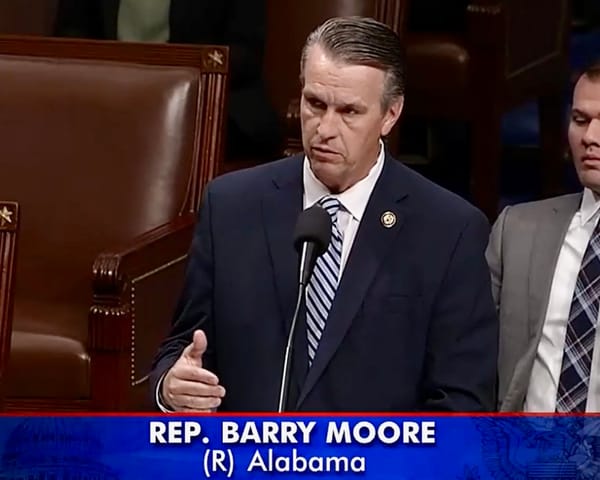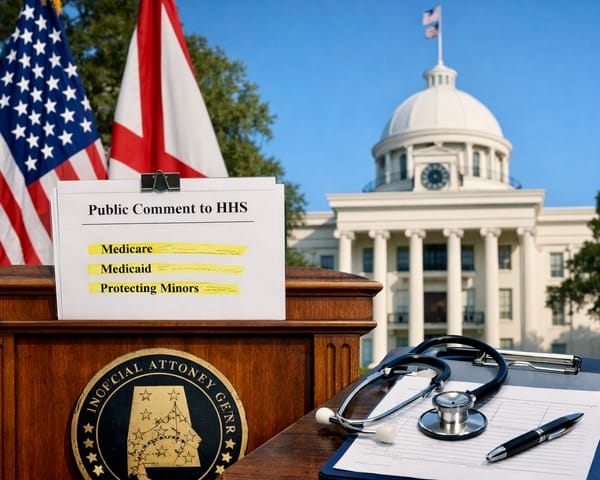Tuberville Reintroduces Two Bills to Aid Alabama’s Farmers and Ranchers
Farm Board Act, Oilseed Double Cropping Study Act draw praise from across State

U.S. Senator Tommy Tuberville (R‑AL) has reintroduced two bipartisan bills aimed at enhancing opportunities for Alabama’s agricultural community: the Farm Board Act and the Mid‑South Oilseed Double Cropping Study Act.
“Our farmers, foresters, and livestock producers shoulder an enormous burden of keeping America’s food secure,” Tuberville said. “They need to make a living off the land, and they need an FCIC Board of Directors that fully reflects their needs. I’m proud to reintroduce legislation that strengthens representation on the FCIC Board, and another that would help solidify a new revenue opportunity for our farmers while addressing the growing need for renewable diesels and synthetic aviation fuels. As Alabama’s voice on the Senate Ag Committee, I’ll continue fighting to secure opportunities for our ag producers as they feed, fuel, and clothe our country.”
The Farm Board Act would require the Federal Crop Insurance Corporation (FCIC) to reserve one of its ten seats for a producer who raises both crops and livestock. The goal is to bring balanced insight ahead of the board’s next turnover cycle beginning May 1, 2027. The bill has earned backing from the American Farm Bureau Federation, Alabama Farmers Federation, Alabama Department of Agriculture & Industries, and the Alabama Cattlemen’s Association.
Alabama Commissioner of Agriculture Rick Pate praised the move, saying, “I commend Coach on each piece of legislation. The Farm Board Act will ensure representation for production agriculture to the FCIC Board of Directors while the Mid-South Oil Seed Bill will help pave the way for another alternative crop for producers to consider growing based on the demand for renewable fuel. I look forward to Coach getting each bill to the finish line.”
“We appreciate Coach’s continued support of Alabama farmers and his steadfast dedication to supporting innovation while managing risk by increasing availability and oversight of crop insurance programs,” said Alabama Farmers Federation President Jimmy Parnell, lauding Tuberville’s action. “With more offerings than ever for livestock producers, it is important these farmers have representation on the FCIC Board. Additionally, as farmers are looking at alternative crops to supplement their income, the Mid-South Oilseed Double Cropping Study Act will help to make sure they have the appropriate risk management tools available.”
The Mid‑South Oilseed Double Cropping Study Act calls for a USDA Risk Management Agency (RMA) study on the feasibility of double-cropping winter oilseeds like canola and rapeseed in Alabama, Tennessee, and Kentucky. The aim is to assess economic gains, soil health, biodiversity, and risk management for farmers. Cotton acreage could be followed by canola for use in renewable diesel and Sustainable Aviation Fuel (SAF).
Tuberville noted that diversifying energy sources is vital. He cited the potential to double renewable diesel capacity by 2030, and growth in global jet-fuel demand from 106 billion gallons to over 230 billion by 2050.
Support for the bill also comes from the U.S. Canola Association, National Oilseed Processors Association, Alabama Farmers Federation, and the Alabama Department of Ag & Industries.
Both bills remain in the Senate Agriculture Committee. If passed, they would take steps toward increasing farmer representation on the FCIC board and expanding crop-insurance frameworks to support winter oilseed growers< in the Southeast.




